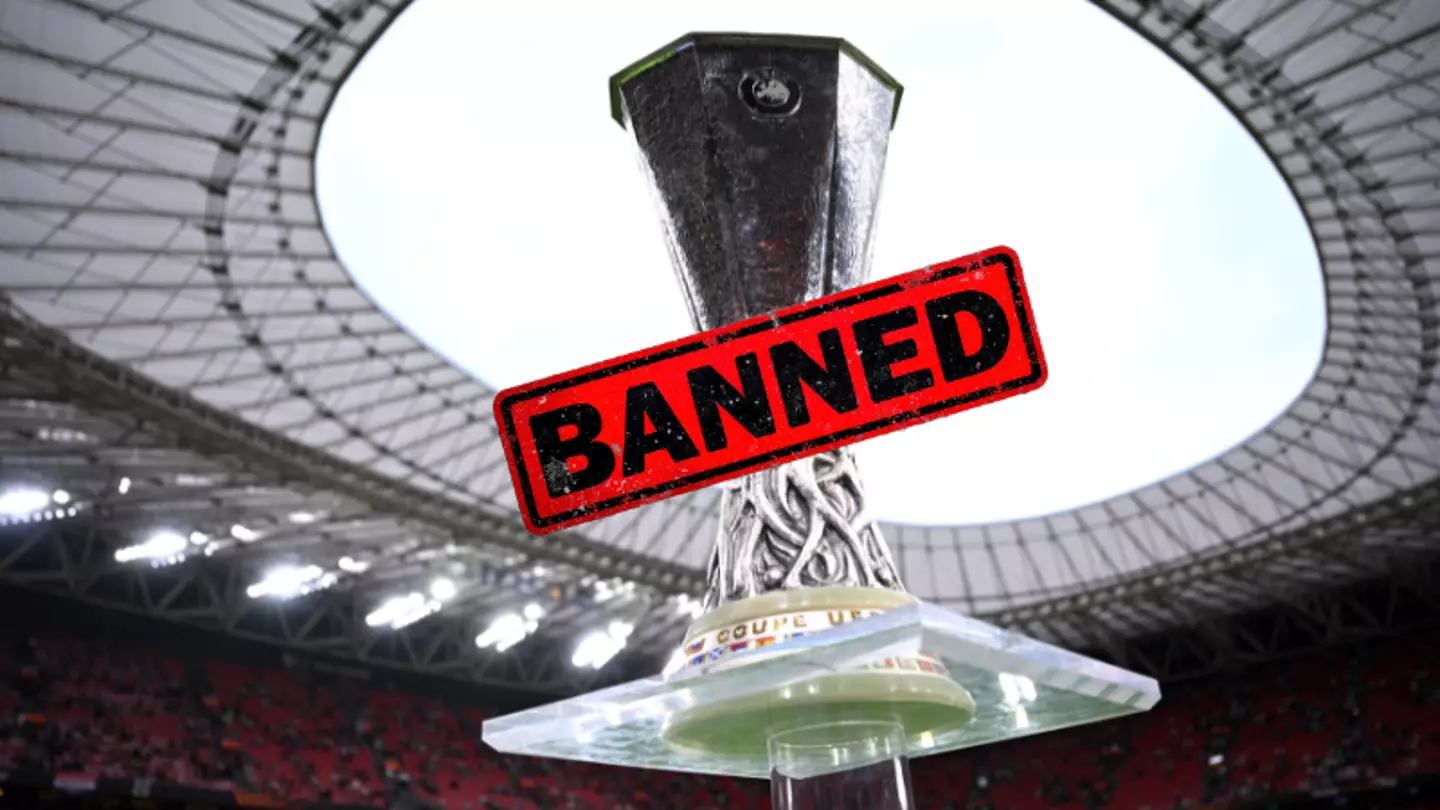
UEFA have banned 10 clubs from competing in the Europa League throughout the competition's history.
The competition was rebranded in 2009, with it being previously known as the UEFA Cup since its inception in 1971.
It is Europe's second-tier continental competition, with automatic qualification for the following season's Champions League awarded to the winner.
Teams from 55 national confederations are eligible to enter the tournament through either, or both, of their domestic league or cup competitions.
Advert
There are few restrictions on teams that can enter any of UEFA's three competitions, but a host of teams have been banned entirely.
The latest of those, of course, is Crystal Palace, who were demoted from the Europa League down to the Conference League due to breaches of multi-club ownership rules.
Palace have already been drawn into the Conference League but, pending an appeal, could yet return to the Europa League in a straight swap with Nottingham Forest.
In 2019, Italian side AC Milan were banned from European competition because of Financial Fair Play breaches.
The seven-time European Cup winners had finished fifth in Serie A, so would have played in the Europa League in normal circumstances.
A year earlier, UEFA handed out one of its biggest-ever bans, with Albanian top-flight club Skenderbeu suspended from their competitions for 10 years after being found guilty of match-fixing.
UEFA investigators (as per Associated Press) found suspected match-fixing of two Champions League qualifying matches and two Europa League group matches.
As part of the court process, UEFA sought a ban from the Champions League and Europa League for the Albanian club.
In 2016, meanwhile, Ukrainian side FC Dnipro were suspended from the Europa League for three years due to financial irregularities.
Dnipro had reached the final of the Europa League in 2015, losing to Sevilla, and would have qualified for the 2016/17 competition without the ban.
The club ultimately folded in 2019 due to outstanding payments owed to players and managers. It's successor, SC-Dnipro, took over the assets of the club but itself withdrew from professional football in 2024.
Azeri side Inter Baku were also hit with a three-year ban in 2016, though it would only apply to the next European competition they qualified for within those three years. They missed out on playing in the Europa League in 2016/17 as a result.
The years of 2012 and 2013 was a particularly busy one for the UEFA committees, with four teams handed suspensions.
Turkish Super Lig club Fenerbahce were blocked from entering the Europa League for a two-year period after being sanctioned for match-fixing.
Fellow Turkish side Besiktas were also banned from the Europa League for one year over match-fixing allegations - the difference being it was their first offence, compared to Fenerbahce's second - having already played a play-off fixture in that season's competition.
In the summer of 2012, UEFA turned down a licence for Scottish giants Rangers to play in their second-tier competition.
The Gers had finished second in the previous season's Scottish Premiership, but spent the latter part of that season in administration and failed to submit accounts for the year 2011.
The club would subsequently be administratively relegated to the Scottish Third Division following its liquidation, and would be reformed in time for the start of the 2012/13 season.
In the same year, Spanish outlet Malaga were suspended from UEFA competitions, including the Europa League, for two years due to unpaid bills. The suspension was later reduced to one year, but Malaga finished sixth in the 2012/13 La Liga table and thus missed out on the Europa League.
Finally, Swiss side FC Sion were expelled from the 2011/12 Europa League after it was found that they had fielded players who were ineligible as they had been signed during a FIFA transfer ban.
Topics: UEFA, Europa League, Champions League, Crystal Palace, AC Milan, Rangers, Besiktas, Fenerbahce, Premier League, Serie A, La Liga